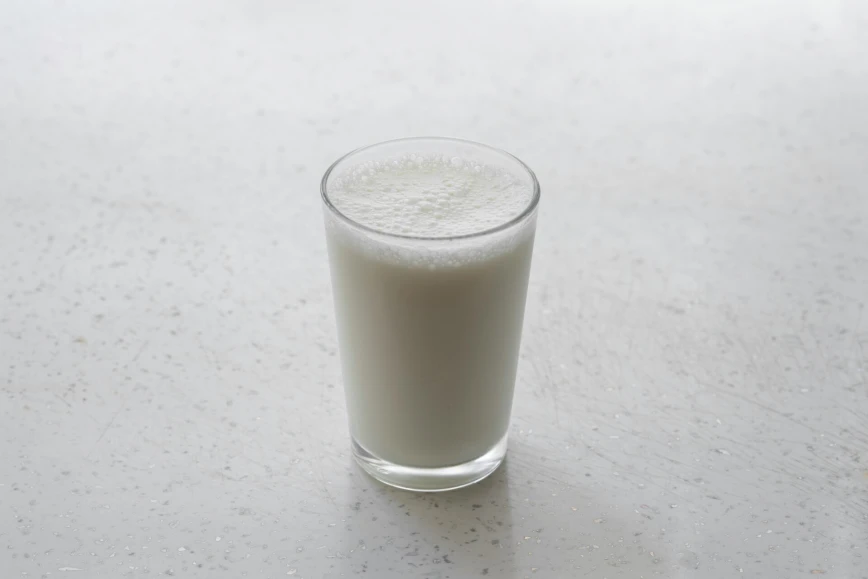The age-old debate about protein shake timing persists among fitness enthusiasts: should you drink your protein shake before or after hitting the gym? I’ve spent years researching this question, and the answer might surprise you.
As both a fitness coach and nutrition enthusiast, I understand the importance of proper protein timing when focusing on muscle building and workout optimization. For years, many believed the post-workout anabolic window was the only time to drink a shake.
Here’s the truth: according to recent research published in PeerJ, you can get the muscle-building benefits whether you take your protein before or after training. What matters most is ensuring you get adequate protein throughout your day.
Companies like Human Improvement have transformed the protein supplement market with plant-based powders that offer superior bioavailability and easy digestion. Their formulas make it simple to get quality protein whenever works best for your schedule.
In this guide, we’ll explore the science behind protein timing, examine the benefits of both pre and post-workout consumption, and help you determine the optimal approach for your specific fitness goals.
Note: This article contain affiliate links. If you purchase through these links, we may earn a commission at no extra cost to you.
Understanding Protein’s Role in Fitness

Proteins serve as the fundamental building blocks for our body’s tissues, playing an essential role in muscle repair and growth. As a key macronutrient, protein drives thousands of biochemical reactions that maintain our strength and health.
During physical activities, particularly resistance training, we create microscopic tears in our muscle fibers. This natural process activates the body’s repair mechanisms, which depend on protein to rebuild and strengthen these tissues.
The repair process centers on muscle protein synthesis, where your body uses amino acids from protein to construct new muscle tissue. This precise process requires all nine essential amino acids to function effectively.
The Science of Muscle Repair
During intense workouts, our muscles undergo controlled damage at the cellular level. This damage initiates the body’s natural repair processes, which continue for up to 48 hours after exercise.
Leucine, an essential amino acid found in high-quality protein sources, plays a crucial role in triggering muscle protein synthesis. Research shows that consuming adequate protein helps optimize this repair process.
According to studies published in the American Journal of Physiology, consuming protein after resistance training significantly increases muscle protein synthesis rates, highlighting protein’s vital role in recovery and adaptation.
Protein’s Impact Beyond Muscle
Beyond muscle repair, protein supports various essential bodily functions. It helps create enzymes that drive metabolic reactions and produces antibodies that strengthen your immune system.
Your body uses protein to maintain proper pH levels and fluid balance, ensuring optimal performance during workouts and daily activities.
Research indicates that protein aids in maintaining strong bones while supporting healthy skin, hair, and nail growth. These benefits make protein essential for overall fitness and well-being.
Quality and Timing Considerations
Not all protein sources provide equal benefits for muscle repair and growth. Complete proteins from chicken, fish, eggs, and dairy deliver all essential amino acids your body needs.
Plant-based athletes can combine protein sources like legumes, quinoa, and tofu to ensure they receive all necessary amino acids. This approach helps maintain optimal protein levels for fitness goals.
The timing of protein intake affects its effectiveness. Distributing protein consumption throughout the day, rather than consuming it all at once, optimizes muscle protein synthesis and enhances recovery.
The Case for Pre-Workout Protein Shakes
As a fitness enthusiast who’s experimented extensively with nutrition timing, I’ve found that Strong Coffee Company and other leading brands are changing our understanding of pre-workout nutrition.
The traditional wisdom of saving protein for post-workout recovery is being challenged by emerging research showing significant benefits to pre-workout protein consumption.
The science behind this approach is compelling – consuming protein before exercise initiates protein synthesis during your training session rather than after.
How Pre-Workout Protein Prevents Muscle Breakdown
When you exercise intensely, your body can enter a catabolic state where muscle tissue breaks down for energy. This process accelerates particularly during strength training and endurance activities.
Pre-workout protein provides your body with a steady supply of amino acids, creating an anti-catabolic environment that helps preserve lean muscle mass during training.
Research indicates that having protein available in your bloodstream during exercise can reduce muscle protein breakdown by up to 30% compared to training fasted.
Optimal Timing for Maximum Benefits
For best results, aim to consume your protein shake 30-60 minutes before training. This timing ensures the amino acids are readily available when you start exercising.
The ideal amount ranges from 20-30 grams of protein, depending on your body weight and training intensity. This provides enough amino acids without causing digestive discomfort.
Combining your protein with some complex carbohydrates can enhance the benefits by providing sustained energy throughout your workout.
Enhanced Performance and Recovery
By having amino acids readily available during exercise, your body can begin the repair process immediately rather than waiting until post-workout.
This head start on recovery may help reduce post-exercise fatigue and soreness, allowing you to maintain consistent training intensity across multiple sessions.
Studies show that pre-workout protein can also improve exercise performance by maintaining muscle function and reducing fatigue during intense training.
To maximize the benefits of pre-workout protein while supporting overall fitness progress, consider integrating high-quality protein supplements into your pre-training routine.
Remember that proper timing and dosage are key factors in achieving the best results from your pre-workout protein strategy.
Benefits of Post-Workout Protein Consumption

Post-workout protein shakes provide fast-digesting nutrition when your muscles need it most. Research confirms that consuming protein within 30-60 minutes after exercise enhances muscle repair and shortens recovery time.
The science behind post-workout protein is clear: intense exercise creates microscopic tears in muscle fibers. Your body requires adequate protein to repair these tears and build stronger muscles.
Accelerated Muscle Recovery
Faster muscle recovery stands as a primary benefit of post-workout protein consumption. Studies demonstrate that whey protein specifically aids in repairing muscle fibers after intense exercise, accelerating the recovery process.
Your body rapidly absorbs the amino acids in protein shakes, supplying essential building blocks for muscle repair. This efficient delivery system often determines whether you’re prepared for your next workout or face extended soreness.
Professional athletes consistently rely on these benefits.
Reduced Muscle Soreness
Post-workout protein consumption effectively minimizes delayed onset muscle soreness (DOMS), which typically peaks 24-48 hours after exercise.
Research demonstrates that immediate post-exercise protein intake reduces both the intensity and duration of muscle soreness. This benefit proves especially valuable for athletes following demanding training schedules.
Combining protein with other nutrients amplifies these advantages. Studies show that pairing protein with carbohydrates effectively replenishes glycogen stores while supporting muscle recovery.
| Supplement Type | Recovery Time to Pre-Exercise Values | Muscle Group |
|---|---|---|
| Placebo (PLA) | 72 hours | Isometric Knee Extensors |
| Carbohydrate (CHO) | 48 hours | Isometric Knee Extensors |
| Protein (PRO) | 48 hours | Isometric Knee Extensors |
Enhanced Muscle Growth
The role of post-workout protein in muscle growth represents its most valuable benefit. The post-exercise period offers optimal conditions for muscle protein synthesis.
During this window, muscles show heightened receptivity to nutrients, particularly protein. This enhanced absorption state enables more effective muscle repair and growth.
The Science Behind Protein Timing
For years, bodybuilders and athletes have religiously consumed protein immediately after workouts, believing they needed to capitalize on a narrow 30-60 minute ‘anabolic window’ to maximize muscle growth. This widely-accepted practice has dominated sports nutrition recommendations for decades.
Recent research from leading exercise scientists challenges this long-held belief. A comprehensive meta-analysis conducted by Schoenfeld et al. found no significant differences in muscle strength or size between subjects who consumed protein immediately post-workout versus those who delayed consumption by several hours.
The key finding that transforms our understanding is that total daily protein intake appears far more important than precise timing. Studies indicate that consuming adequate protein throughout the day – typically 1.6-2.2g per kilogram of body weight – is what truly drives muscle protein synthesis and recovery.
This expanded perspective suggests the anabolic window may be much wider than previously thought, potentially extending several hours before and after training. The body appears remarkably adaptable in utilizing protein for muscle building across a broader timeframe, provided sufficient total intake is achieved.
For practical application, while immediate post-workout protein consumption remains beneficial, don’t stress if you can’t get to your shake right away. Focus instead on consistently hitting your total daily protein targets through well-spaced meals containing high-quality protein sources. This more flexible approach aligns with both the latest science and the practical constraints of real-world training.
Factors Influencing Protein Shake Timing
The timing of your protein shake consumption can significantly impact your muscle recovery and overall fitness results. Research shows that while post-workout shakes are beneficial, individual factors determine the optimal timing for protein intake.
Your specific fitness goals play a crucial role in determining when to consume protein. For those focused on muscle growth and strength gains, consuming protein within 30-60 minutes after exercise helps maximize muscle protein synthesis.
Workout Intensity and Recovery Needs
The intensity of your training sessions directly affects your protein requirements and optimal consumption timing. High-intensity resistance training creates more muscle damage, making proper protein timing essential for recovery.
According to research from fitness experts, you should consume 0.14-0.23 grams of protein per pound of body weight around your workout for optimal results.
For endurance athletes, splitting protein intake before and during workouts can enhance performance and reduce muscle breakdown during long training sessions.
Digestive Considerations and Comfort
Your body’s ability to process protein efficiently affects shake timing. Some individuals experience discomfort when consuming protein close to exercise.
Those sensitive to pre-workout protein may benefit from post-workout consumption. This approach helps avoid digestive issues that could impact performance.
Listen to your body’s signals and adjust your timing if you notice bloating or discomfort.
Daily Schedule and Lifestyle Factors
Your daily routine influences the most practical times for protein consumption. Early morning exercisers often prefer post-workout shakes due to time constraints.
Evening workout enthusiasts may benefit from both pre and post-workout protein intake, particularly when dinner is scheduled several hours after training.
Consider your meal timing, work schedule, and daily commitments when planning your protein strategy.
Individual Response and Preferences
Everyone responds differently to protein timing strategies. What works effectively for one person might not suit another.
Some athletes achieve better results with pre-workout protein, while others prefer post-workout consumption. Focus on finding what aligns with your body’s needs and preferences.
Monitor how different timing strategies affect your energy levels, recovery, and progress toward fitness goals.
Optimizing Your Protein Intake for Maximum Benefits
Think of protein intake like building a house – protein shakes serve as quick-assembly supports, while whole foods form your solid foundation. These convenient supplements play a valuable role when integrated into a balanced nutritional framework.
Spread your protein consumption throughout the day rather than loading up at a single meal. Aim for 20-30 grams of protein every 3-4 hours to maintain steady amino acid levels in your bloodstream.
Strategic Timing and Food Pairings
Your body optimally utilizes protein when combined with complementary nutrients. Pair your shake with complex carbohydrates like oats or sweet potatoes to provide sustained energy and enhance protein absorption.
For post-workout recovery, blend your protein shake with antioxidant-rich berries and healthy fats like chia seeds. This combination helps reduce inflammation while supporting muscle repair.
Include fiber-rich vegetables or a small piece of fruit with your protein shake. The fiber slows digestion, enabling better nutrient absorption and sustained energy release.
Balance is Key
Remember that protein shakes should enhance, not replace, a whole food diet. They’re especially useful immediately after workouts or during busy days when preparing a meal isn’t practical.
Focus on getting most of your daily protein from diverse whole food sources like lean meats, fish, eggs, legumes, and dairy. These foods provide additional nutrients that support overall health and performance.
Track your total daily protein intake instead of focusing on individual meals. Most active adults benefit from consuming 0.8-1.2 grams of protein per pound of body weight spread across multiple meals and snacks.
Optimal Protein Shake Timing: What Really Matters

The debate around protein shake timing isn’t as crucial as once believed. Research shows that maintaining consistent daily protein intake matters more for achieving fitness goals than the traditional post-workout ‘anabolic window.’
Whether you prefer morning shakes to energize your day or post-workout drinks for recovery, meeting your individual protein requirements is essential. Active individuals should aim for 1.6 to 2.0 grams of protein per kilogram of body weight to support optimal muscle growth and recovery.
Human Improvement’s plant-based protein powders provide a premium solution for clean, high-quality protein supplementation. Their products feature Organic ioPea™ Protein, clinically proven to be three times more bioavailable than standard pea protein, supporting lean muscle development and overall health.
Remember that consistency in your nutrition routine matters more than perfect timing. Focus on building sustainable habits you can maintain long-term, whether incorporating protein shakes before workouts, after exercise, or between meals – choose what fits your lifestyle best.
Listen to your body, test different timing approaches, and maintain your commitment to proper nutrition. With consistent habits and high-quality protein supplementation from Human Improvement, you’ll effectively support your fitness and recovery goals.
Upgrade your nutrition with Human Improvement – clean, high-quality protein designed for better performance and digestion. Get 15% off your order with code MidlifeMale – shop now!







